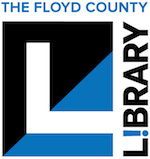December is National Human Rights Month, and December 10 is Human Rights Day. The Universal Declaration of Human Rights was an extraordinary achievement when it was signed on December 10, 1948. It was created by representatives from different cultural backgrounds and regions across the globe, and it established a universal protection of human rights. It’s also one of the most translated documents in the world! You can read the full document by clicking on this link.
While we still have a ways to go to advance rights for all, we can make small strides by showing compassion to everyone we meet. Here are a few books from our collection that can help get you started on the path to practicing compassion in your everyday life!
I Feel You by Cris Beam

In I Feel You, Cris Beam carves through the noise with a revelatory exploration of how we perform empathy, how it is learned, what it can do–indeed, what empathy is in the first place. She takes us to the labs where the neural networks of compassion are being mapped, and the classrooms where children are being trained to see others’ views. Beam visits courtrooms and prisons, asking how empathy might transform our justice system. She travels to places wracked by oppression and genocide, where reconciliation seems impossible, to report on efforts to heal society’s deepest wounds through human connection. And finally, she turns to how we, as individuals, can foster compassion for ourselves.
The Compassionate Connection by David Rakel

In The Compassionate Connection, Rakel draws on his clinical experience with patients and the latest research from medicine, psychology and neuroscience to describe the power of human connection, and the ways it can be used to boost health and well-being. Once we understand this power and learn the tools that are necessary to create a connection, we can live with clarity, creativity, wisdom and good health. The Compassionate Connection will give us the skills to improve the quality of our relationships, whether doctor/patient, husband/wife, parent/child, teacher/ student or boss/employee.
Twelve Steps to a Compassionate Life by Karen Armstrong

The twelve steps Armstrong suggests begin with “Learn About Compassion” and close with “Love Your Enemies.” In between, she takes up “compassion for yourself,” mindfulness, suffering, sympathetic joy, the limits of our knowledge of others, and “concern for everybody.” She suggests concrete ways of enhancing our compassion and putting it into action in our everyday lives, and provides, as well, a reading list to encourage us to “hear one another’s narratives.” Throughout, Armstrong makes clear that a compassionate life is not a matter of only heart or mind but a deliberate and often life-altering commingling of the two.
